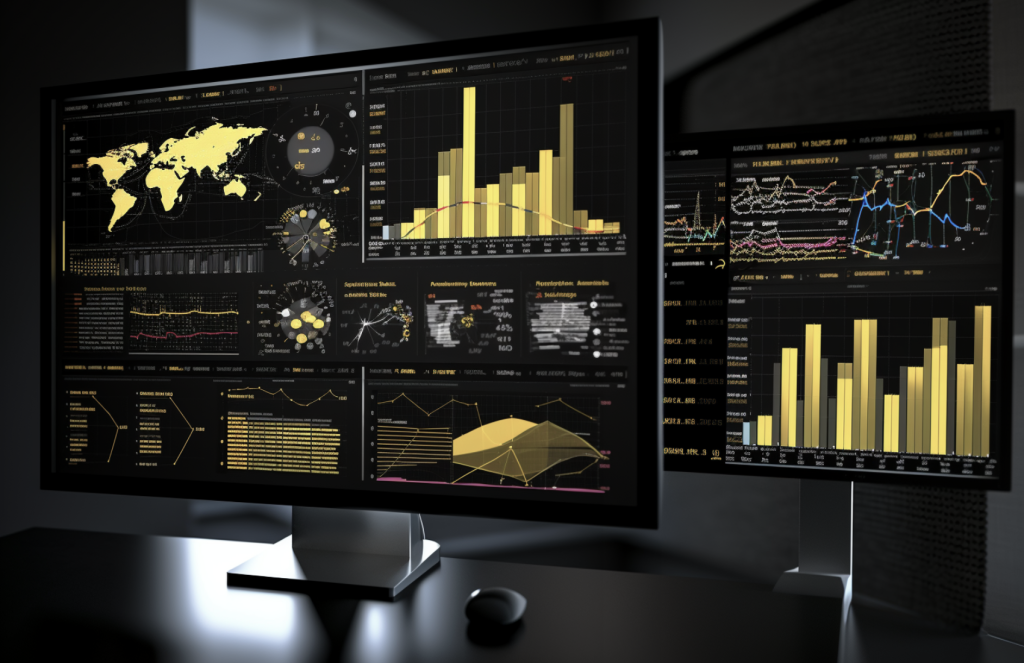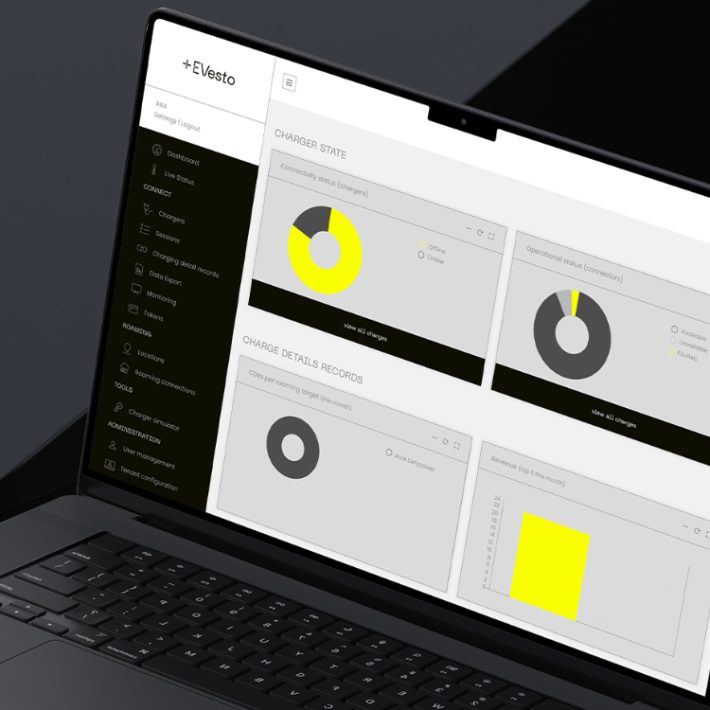10 Questions to Ask Before Choosing Your CPMS
6th September 2023
In the rapidly evolving world of electric vehicles (EVs), having efficient Charge Point Management Software (CPMS) is no longer a luxury—it’s a necessity. But with so many options available, how do you choose the best CPMS for your needs? In this guide, we’ll explore the essential questions to ask and the benefits of EV charging management software.

What is Charge Point Management Software (CPMS)?
At its core, CPMS is a digital platform designed to manage and monitor EV charging stations. It ensures that charge points are operational, users can access them seamlessly, and charge point operators (CPOs) can gather data and insights from their charging infrastructure. CPMS ensures that EV charging stations are effectively managed, monitored, and maintained.
What is CSMS in EV Charging?
CSMS stands for Charging Station Management System. It’s another term often used interchangeably with CPMS. Both refer to systems that manage and monitor EV charging stations, ensuring optimal performance and user experience.
What is an Electric Vehicle Management System?
An Electric Vehicle Management System (EVMS) is a broader term encompassing all systems managing various aspects of electric vehicles, from battery management to charging infrastructure. CPMS is a subset of EVMS, focusing specifically on the charging infrastructure. EVMS is a critical component of modern electric vehicles. It ensures the vehicle operates efficiently, safely, and reliably, providing drivers with a seamless and enhanced driving experience. As EV technology continues to evolve, the functionalities and capabilities of EVMS are expected to expand further, making it even more integral to the EV ecosystem.
Benefits of EV Charge Point Management Software
- Efficiency: Streamlines operations, ensuring chargers are always available and operational. CPMS provides a centralized platform to manage multiple charging stations, regardless of their geographical location. This allows charge point operators (CPOs) to monitor each charging point’s status, availability, and performance from a single dashboard.
- User Experience: For EV drivers, a well-managed charging infrastructure means less waiting time, transparent billing, and a seamless charging experience. And for CPOs, this means a higher EV driver retention rate. CPMS plays a pivotal role in ensuring all of this.
- Data Analytics: Offers insights into usage patterns, peak demand times, and other valuable metrics. This data can be used to make informed decisions about expanding or optimizing the charging infrastructure for CPOs.
- Cost Savings: Predictive maintenance can lead to a more efficient allocation of maintenance resources and better planning, ensuring that chargers remain operational for the maximum possible time. A better user experience can increase customer loyalty, reducing the costs of acquiring new customers.
- Dynamic Pricing: CPMS allows CPOs to set dynamic pricing models based on various factors such as demand, time of day, energy prices, and special events. By adjusting prices in real-time, CPOs can optimize revenue and manage costs more effectively.
- Scalability: As the number of EVs and charging stations grows, CPMS provides the scalability to manage this expanding infrastructure without compromising efficiency or user experience.
- Real-time Monitoring: One of the key features of CPMS is its ability to monitor charging stations in real-time. This includes tracking the status of each charging point, identifying any faults or issues, and ensuring that stations are operating optimally.
- Maintenance and Troubleshooting: CPMS can send alerts and notifications in case of any malfunction or required maintenance. This helps reduce downtime and ensures that charging stations are always available.
- Integration with Other Systems: CPMS can often be integrated with other systems, such as payment gateways, customer relationship management (CRM) software, ERP systems, and financial systems to support invoicing and energy management systems. This provides a holistic approach to managing the entire EV charging ecosystem.
Key Questions to Ask When Choosing a CPMS for Your Operations
- Compatibility:
- Why it matters: Different EV charging stations might operate on various standards and protocols. Your CPMS should be versatile enough to handle them all.
- Deep Dive: Does the software support both AC and DC charging standards? Can it integrate with newer charging technologies as they emerge?
- Is the team and the product versatile enough to adapt to market changes in protocols and standards?
- Scalability:
- Why it matters: As the demand for EVs grows, so will the need for more charge points. Your CPMS should grow with you.
- Deep Dive: Can the software efficiently manage a few chargers today and scale to handle hundreds or even thousands in the future without significant upgrades or costs? Can it operate on a global scale in different regions and continents?
- Features and Functionality:
- Why it matters: A CPMS should do more than just manage charge points. It should offer insights, analytics, and real-time data to optimize operations.
- Deep Dive: Does the software provide detailed usage statistics? Can this data be used to grow my business efficiently? Can it alert you to issues or maintenance needs before they become critical? Can it adapt to new technological advancements in the market?
- User Experience:
- Why it matters: An intuitive interface ensures operators can easily navigate and utilize the system. It should be simple enough for anyone to understand.
- Deep Dive: Is the operator dashboard easy to navigate and understand? Are there white labelling options
- Integration Capabilities:
- Why it matters: A good CPMS should seamlessly integrate with other systems, from billing to energy management to an ERP system.
- Deep Dive: Does it offer APIs for easy integration with other platforms? Can it work in tandem with renewable energy sources or grid management systems?
- Roaming Capabilities:
- Why it matters: Roaming capabilities allow customers to use their membership at your charging stations to charge their vehicles at other network stations. This feature can significantly enhance the user experience and your network’s accessibility.
- Deep dive: Is the CPMS integrated with major roaming partners across Europe and the rest of the world?
- Cost Considerations:
- Why it matters: Affordability is key, but it’s essential to understand the full cost spectrum.
- Deep Dive: Beyond the initial purchase or subscription price, are there costs associated with updates, additional features, or scaling up? Are there hidden commissions and other fees involved?
- Security Features:
- Why it matters: With increasing cyber threats, ensuring the security of user data and payment information is paramount.
- Deep Dive: Does the software undergo regular security audits? Are payment gateways encrypted and compliant with industry standards?
- Uptime and Reliability:
- Why it matters: Downtime can lead to lost revenue and customer trust. A reliable CPMS ensures continuous availability.
- Deep Dive: How does the provider handle outages? Is there a backup system in place? Are there any guarantees or SLAs related to uptime? What is the uptime of the CPMS?
- Support and Maintenance:
- Why it matters: Regular updates and prompt customer support ensure your CPMS remains at the forefront of technology and efficiency.
- Deep Dive: What kind of customer support is available? Is it 24/7? How frequently are software updates rolled out, and are they automatic?
Spotlight: EVesto CPMS
While many CPMS solutions are available, one that stands out with its comprehensive features and user-centric approach is EVesto.
Key Features of EVesto:
- Low Cost: EVesto offers two different models, Connect and Roaming.
- Connect: Price per connector, per month € 1
- Roaming: Price for roaming per connector per month: € 1.25. EVesto has a minimum fee of €400 monthly to cover running costs and support. Additional features that we add in the future might incur additional costs, but they will always be related to the number of connectors.
- No Commission: EVesto believes in collective growth with customers without transaction fees.
- Plug & Play: EVesto’s approach enables immediate online charger connection on their platform.
- Independent Strategy: EVesto is fully independent, partnering with customers to define the platform’s future.
- Quick Time to Market: EVesto offers a fast onboarding process with chargers online within minutes.
- Roaming: EVesto integrates with all major roaming platforms, making it easy for CPOs to connect with the roaming hub of their choice or to set up direct connections with the eMobility Providers, enabling CPOs to link with multiple charging networks and establish bilateral agreements with EMPs.
- Unlimited Scaling: EVesto is designed for exponential growth without disturbances.
- Plug & Charge: EVesto is ISO 15118 certified, supporting CPO and OEM for a hassle-free charging experience.
- Self-Service Portal: EVesto’s self-service portal offers a comprehensive platform that seamlessly supports all operator processes. Everything can be efficiently managed and configured within the portal, from operations, sessions, and users to CDRs, roaming, and white-label options.
- Customer service with EVA Global: EVesto collaborates with EV Assist, offering a 24/7 omnichannel service backed by EVA Global’s expert technical support team. This team is dedicated to addressing customer challenges at the charge point and beyond, currently serving end-users across 32 countries in 30 languages, with continued expansion.
- Security: EVesto, adhering to the ‘security by design’ principle, emphasizes the integration of security best practices throughout the development and operational phases of EV chargers. A cornerstone of their security strategy is the implementation of ‘rotating secrets.’ When an EV charger is integrated into the EVesto platform, it’s provisioned with two secrets, Secret A and Secret B. Using the OCPP security profile 2, the EVesto portal provisions a new secret via the ChangeConfiguration command, followed by a reset. This allows for the rotation of Secret A, bolstering the charger’s security.
- Uptime: EVesto, a leading player in the EV industry, stands at the forefront by boasting an unprecedented uptime of over 99.9%.
Choosing the best CPMS is crucial for anyone offering efficient and reliable EV charging services. By asking the right questions and understanding the benefits and functionalities of these systems, you can ensure you’re making an informed decision.

